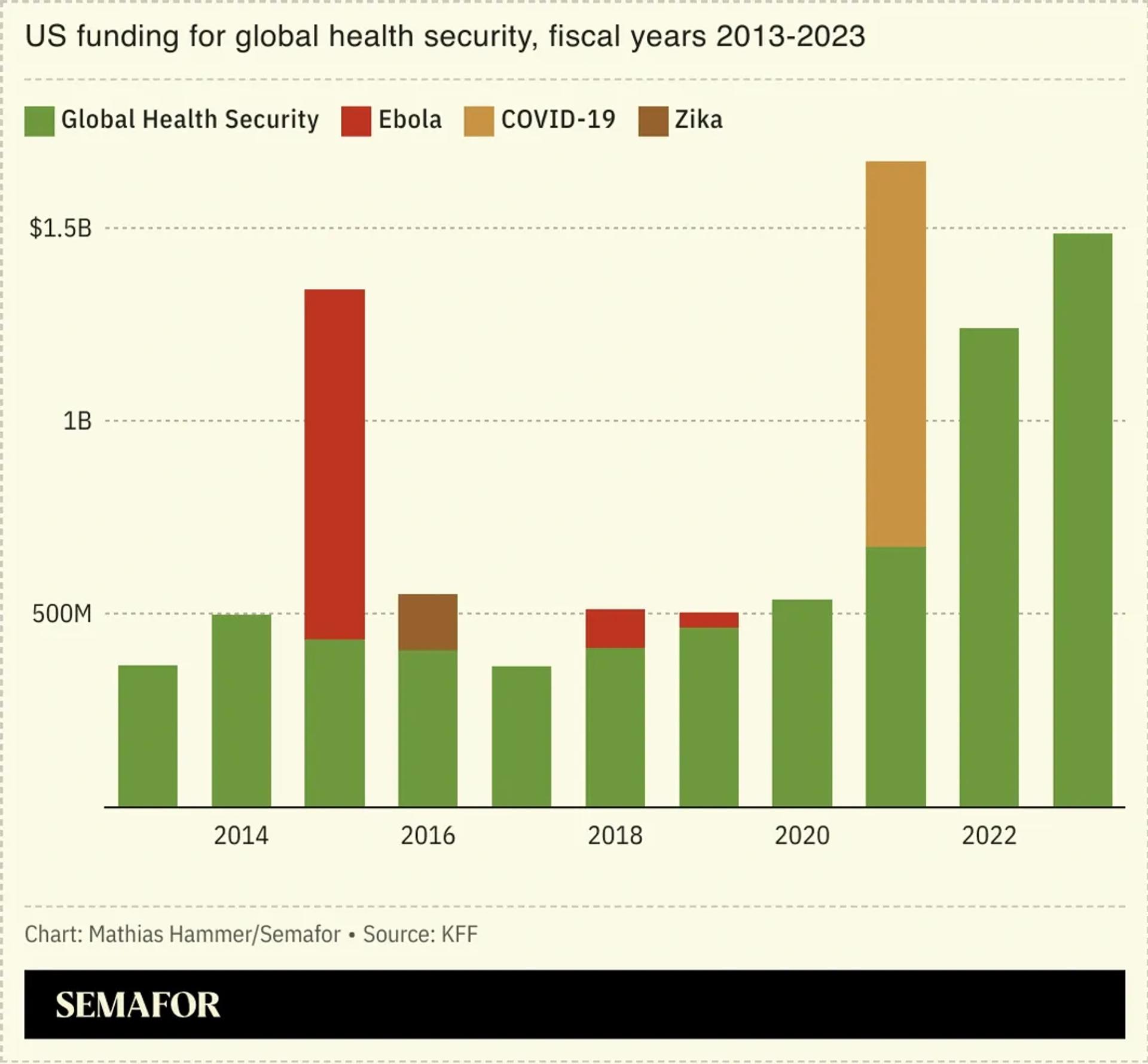The News
Five years after Wuhan imposed the world’s first COVID-19 lockdown, public health experts worry that Donald Trump’s policies could make it harder to fight the next global pandemic.
On his first day in office, the president moved to withdraw the US from the World Health Organization, and later paused all external communications from federal health agencies. Scientists fear that an exit from WHO — which will take at least a year — could diminish the US’ standing as a global health leader and complicate its response to another pandemic, because US agencies wouldn’t have access to the organization’s global data.
WHO has long been a target for conservatives who said it has become too politicized and infringes on American sovereignty.

SIGNALS
Experts split on the extent that China can fill funding gap left by US
The US withdrawal from the World Health Organization — endangering some 20% of its budget — is “giving a great benefit to the Chinese,” a a global health policy expert told The Washington Post: Beijing could try to fill the gap Washington leaves behind, both in terms of money and in leadership. China has historically prioritized diplomacy through bilateral partnerships over multinational organizations, some other experts cautioned, especially given Beijing’s”incredibly complicated relationship with the WHO” since COVID, The Telegraph noted. “It might be a big opportunity for China — but do they really care about the WHO — or do they care more about maintaining broader influence bilaterally?” one health policy researcher said.
Developing countries will feel the biggest hit
The WHO is crucial for responding to global health crises, especially in impoverished and developing countries, with several world nations facing a resurgence of tuberculosis and a growing risk of malaria driven by climate changes. The agency’s funding is already secured for this year, but the developing world’s health must be “safeguarded from the kinds of tensions and conflicts and politics that go on between countries,” a United Nations researcher argued. Some public health experts are also concerned that conservatives could push Trump to enact a potential ban or rollback of US funding for global NGOs that provide abortions.
Trump’s WHO withdrawal, health picks are ‘double whammy’ for US public health
The WHO withdrawal will ultimately leave the US in a weaker position in terms of its pandemic and epidemic preparedness, and the personal views of the new administration’s top health picks — including Secretary of Health and Human Services nominee Robert F. Kennedy Jr. — could equate to a “double whammy” for US public health, an epidemiologist told MIT Tech Review: “We’re setting ourselves up for large measles disease outbreaks,” he stressed. WHO also facilitates the sharing of data between countries, crucial to tracking ongoing outbreaks, including bird flu.

